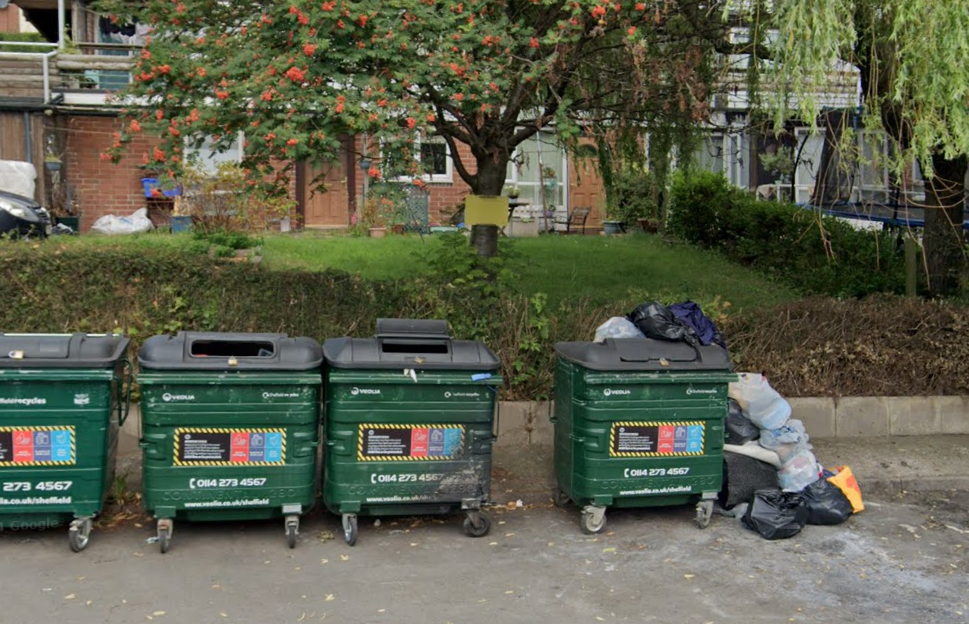Doncaster Belles are set to scrap their girls development squad as part of a potentially wider trend across the country.
A club’s development squad forms a vital transition between 16-year olds and the first-team, without which girls who could not immediately make the step up could be left directionless.
It means that girls can carry on playing after 16 against similarly aged players, providing them with a much stronger chance of improving as a player and being able to progress.
Belles’ manager Nick Buxton, 46, said: “It’s something a few teams are thinking about – is it actually worth it? It’s a big expense. At the minute, it does look like it’s going to go. We don’t know exactly how it’s going to work but I think we’re just going to have a first team squad and go from there.
It’s been a hard decision made by the club, but I think it might be the right one.”

The lack of players interested and gulf in quality required to make the jump to the first team has led Buxton to believe it simply might not be in clubs’ interest financially when money could be spent better elsewhere.
But without this vital transition there is a risk more girls could drop out of the game at 16 – seeing no future for themselves within the sport.
Molly Ashman, now a student at The University of Sheffield, dropped out of Aston Villa’s academy for this exact reason.
The 21-year old said: “It was the hardest decision I’ve ever had to make to leave.
“I think if there had been a development team, I probably would have stayed on.”
Without a proper structure in place, players trying to make it in the game have to take it upon themselves to get help elsewhere to improve.
Ellie Sharpe is a goalkeeper for fourth-tier Doncaster Belles. She feels that she had to rely on outside help due to the lack of proper provision.
The 29-year old said: “My development lay entirely on the shoulders of my friends who were boys. They didn’t care that I was a girl. I was playing with lads out on the street, being shoved into walls and I had to toughen up from there.
“You talk about development and having the access – there was no access. They were the hurdles.”
One of the issues is that even when a club’s team for girls has the title of ‘academy’, the structure is fundamentally different a lot of the time to what is in the mens’ game.
Julie Higgins, 58, secretary of Sheffield Wednesday girls, explained: “It’s a difficult one with the girls because they don’t actually have academies as such, whereas boys have an academy system. Girls have something called an RTC Regional Talent Centre, but they’re all closing shortly.”
Regional Talent Centre’s involve The Football Association (FA) supporting specific womens’ clubs who are working with young players by supplying funding and coaching support depending on the team’s needs.
The aim is to get the best players in the region into these FA-supported teams where they can then receive a better standard of coaching and support than they did before, but this is still very different to the kind of academies that almost all professional men’s teams invest a significant amount of their own money into.
The system is being replaced with Emerging Talent Centres (ETCs), which have lower standards that a club has to meet in order to qualify, and also open up access to less talented players by being less selective about who they let join.
It will see up to 70 clubs become ETC’s initially, more than doubling the 30 clubs that currently function as RTC’s.
This comes with its own challenges however.
Josh Reed is a youth development coach at Barnsley Football Club, and has coached women’s teams in the UK and USA. He feels being less selective could affect the quality of players in the system.

He said: “I think with ETCs they are giving more access but then diluting the quality a little bit.
“The girls who were in RTCs, I know from when Doncaster Belles’ got rid of theirs, quite a lot just packed in playing because they didn’t want to move to an ETC because it was a drop in quality.”
The situation is difficult and complex. Some clubs are moving to get rid of development squads due to a lack of interest and numbers, but being less selective of players could mean that many players are still not able to make the step up to the first team due to the level required.
Reed believes a possible solution could be to intervene at the base of the game with young girls as soon as they start playing football. Girls at primary school age and up often face inconsistent game time, having to play with or against boys, and poor coaching / facilities that all have a cumulative effect by the time girls reach 16.
He said: “For girls out here it’s very limited. While it’s getting better in terms of grassroots teams, there’s not a lot that get [proper coaching and teams] from a very young age.
“I think you’ve got to work at the base layer first. And then you’ll start to see progress. Because if you’ve got a girl at eight years old, who’s being coached in the right way, who’s playing in a team consistently with girls, against girls, she will then start to grow and become more involved in the sport.
“And then once you start getting into development programmes and your first teams at 16, players will then start to stick around more and you can start to create teams.”
There are many hurdles that need to be overcome to get this point however aside from just the funding required.
One example just within coaching itself is the attitude of some male coaches that work with girls.
Reed said: “I think a lot of coaches see it as a lesser sport, so they go into it thinking you can’t get the idea that you can get into boys into girls because they won’t understand it or don’t get it.
“They sort of have that skewed view from 50 years ago, when women’s football was just starting – that one or two girls might be able to play it, but the vast majority of the team are just there.”
He noted this was another area where the US was ‘light years ahead’, as it ran the same coaching syllabus for both boys’ and girls’ teams.
If changes were made to increase the level of quality and provision at the bottom of the game, Reed believes the number of players progressing through to the first teams of women’s football clubs such as Doncaster Belles would rise, and help to increase the amount of girls being retained and develop the sport more widely.
He said: “That’s when your championship and division one starts to become more competitive, and that’s when girls can look at it and go, there’s more ways for me to stay involved.
“At the minute, it’s sort of WSL or bust.”




